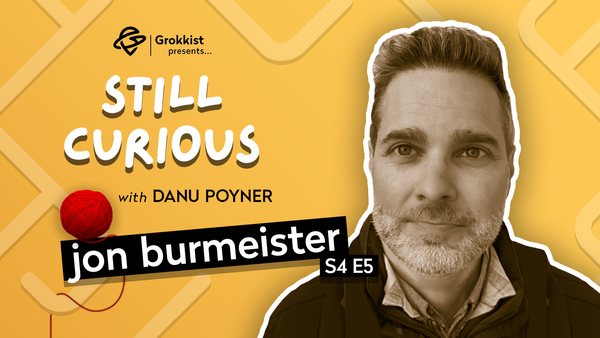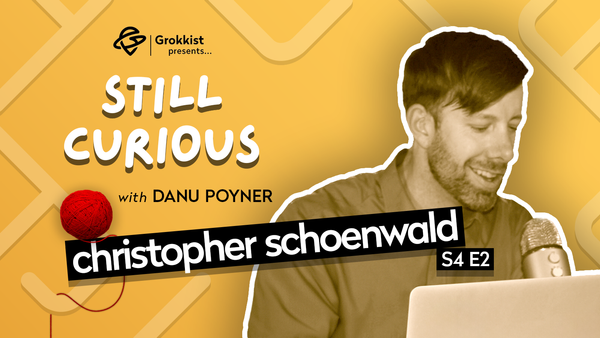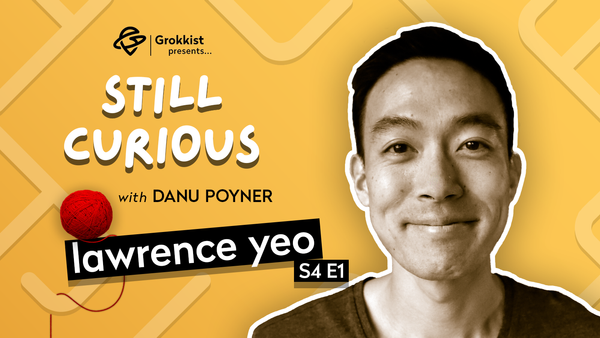Listen Now
Episode Summary
- James' passion for computer games and technology began at a young age, leading him to pursue a career in the field. He was captivated by the immersive and interactive nature of games, which sparked his curiosity and set him on a path to explore the potential of games as a medium for education and innovation.
- He initially aimed to become a medical doctor but shifted his focus to computer science and IT during his university years. This decision was influenced by his fascination with the power of technology and its ability to shape and transform various industries, including healthcare.
- James embarked on his academic journey, completing his honours and PhD degrees, specialising in quality assurance and optimisation using machine learning techniques. His research focused on leveraging emerging technologies to improve the performance and user experience of computer games, laying the foundation for his future work in the field.
- After experiencing the challenges of the IT job market, he found his passion for teaching and joined Bond University in Queensland, Australia, specialising in computer games and film, screen, and creative media. This transition allowed him to combine his expertise in technology with his love for education, empowering students to explore the creative and educational potential of games.
- James is dedicated to exploring the intersection of games and education, utilising his expertise to promote the value of games in learning and fostering innovation in the field of education. He believes that games have the power to engage and motivate learners, providing immersive and interactive experiences that enhance critical thinking, problem-solving, and collaboration skills.
Key Themes
- The tensions and interplay between formal and informal modes of learning, the value of games in education, and the importance of innovation and entrepreneurship in the field of education.
- James' personal experiences with gaming and how it helped him acquire important life skills.
- The benefits of game jams and hackathons in fostering creativity, collaboration, and real-world application of knowledge.
- The use of virtual reality in education, the parallels between e-sports and traditional sports, and the importance of standards and governance in the field of education.
Recorded 8 March 2022
Episode Intro
Computer games was my entire childhood, taught me things, was my educator, everything. It was so funny to see the stigma around games. You would have the graduations, the Dean would say, 'and now here are the graduates from the Bachelor of Computer Games', and you could see the sniggering around the audience. And I went, 'why is it that there's this stigma?'
You're listening to the Still Curious Podcast with me, Danu Poyner. My guest today is James Birt, who is an associate professor of Computer Games and Film, Screen, and Creative Media at Bond University in Queensland, Australia. James specializes in interactive, mixed reality experiences, sits on the International Organization for Standardization working group for augmented and virtual reality and also manages Bond University's e-sports program.
In today's episode, we discuss the tensions and interplay between formal and informal modes of learning, how games taught James important life skills and the value of innovation and entrepreneurship in education.
It's about creating and making. That's the key that creativity, that spark of wanting to do. That's not something that I think can be formalized in teaching that well.
James observes why many kids who love school in their early years fall out of love with it once they get to high school.
If it was a game, we would say there's something wrong with the onboarding, we've got to rebuild the tutorial.
And unpacks the pedagogical value of game jams and hackathons.
You're essentially doing authentic examination under real world conditions, doing direct application of knowledge. If you do not know what you're doing, you ain't going to win the game jam.
We talk about how James uses virtual reality in the classroom, the parallels between e-sports and regular sports, how games helped James, when he broke his back, the importance of standards and governance, and ultimately why James believes so strongly in formalised education.
The tech industry is saying 'we don't need formal education, we can validate their skillset by hosting a hackathon and seeing how they solve the problem, and then bringing them in.' Then what ends up happening is that they'll go in and they may not survive within those organisations. I think having legitimacy there is really important.
It's a jam-packed, heartfelt and thoughtful episode. I hope you enjoy it. It's James Birt coming up after the music break on today's episode of the Still Curious Podcast.
About the Guest
James Birt is an Associate Professor of Computer Games in the Faculty of Society and Design at Bond University, Australia, where he runs the Mixed Reality Research Lab (www.mixedrealityresearch.com). His research spans computer science and visual arts, with an emphasis on applied design and development of extended reality (XR) and games-based experiences for assisting learning and knowledge discovery. James is recognised as an international leader in educational technology, XR and games with an editorial role with Springer Educational Technology Research and Development (ETR&D), a position on the International Organization for Standardization (ISO) working group for AR/VR, an assessor’s role for the International Serious Games Showcase and Challenge (SGSC) and an expert role on the 2022 EDUCAUSE Horizon Report.
Links and Resources
- James' staff profile at Bond University and LinkedIn profile
- EDUCAUSE Horizon reports
- Video of James' use of mixed reality in the classroom
Audio Highlights
Episode appetiser - The stigma around computer games (20 sec)
James explains E-Sports to a 55 year old (38 sec)
The life-changing experience James would gift to someone (34 sec)
How James' curiosity about computer hardware and software was sparked (44 sec)
How James' curiosity about computer hardware and software was sparked (50 sec)
Interactive Transcript
Note: This is a machine-generated transcript and may contain errors.











Member discussion